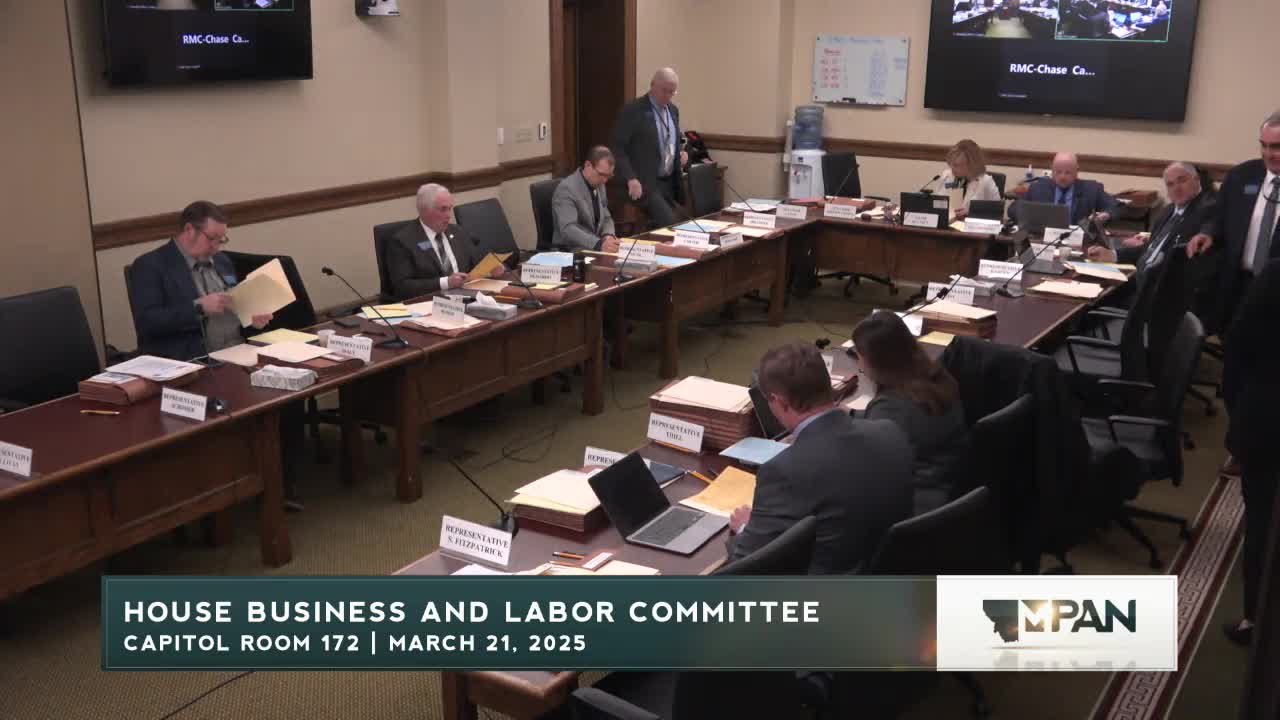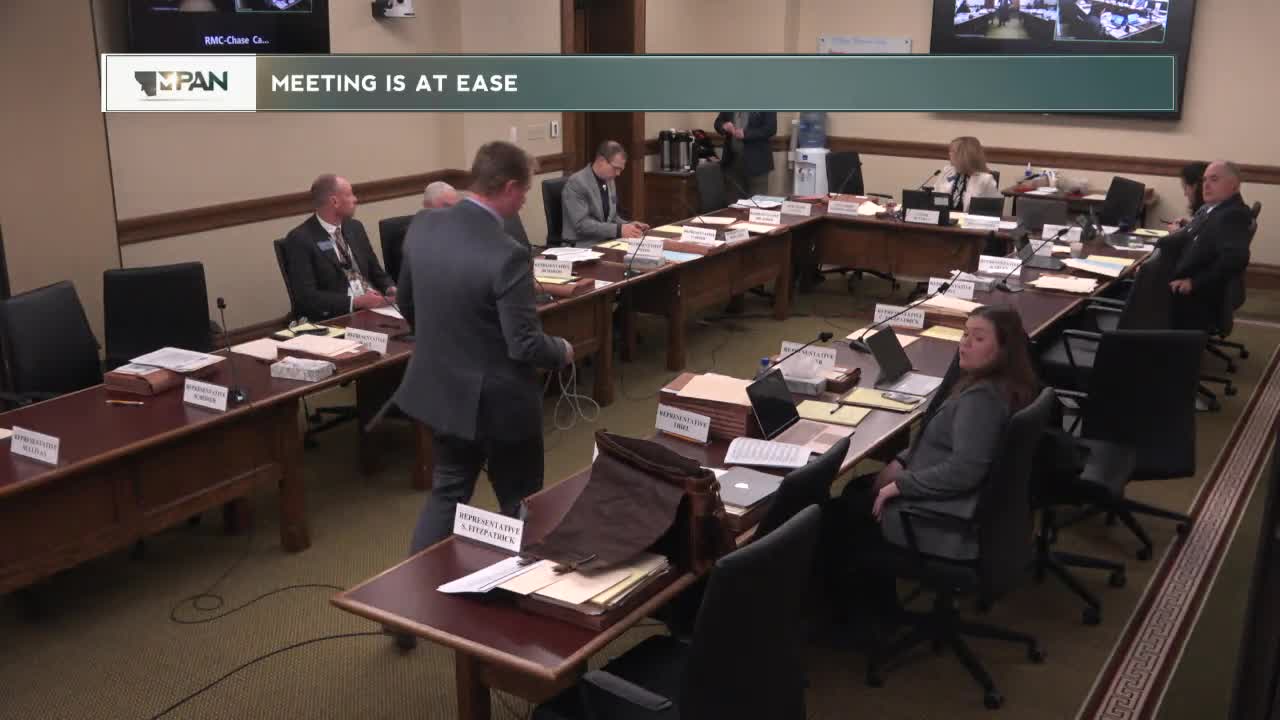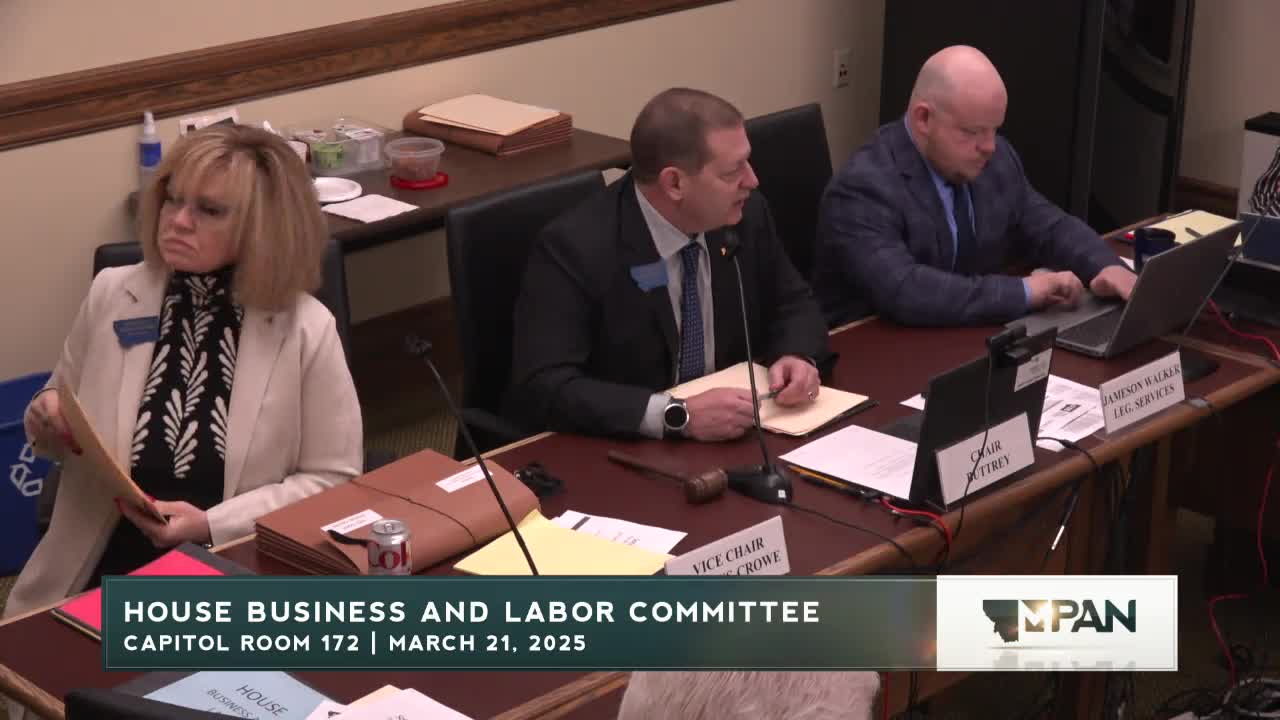Article not found
This article is no longer available. But don't worry—we've gathered other articles that discuss the same topic.

Bill would stop liquor licensing from being used to enforce income tax delinquencies, sponsor says

Heated hearing over bill to allow narrow cigar bar endorsements under Montana’s Clean Indoor Air Act

Committee hears cleanup bill to let clinician staff hand medications to direct primary care patients

